CEB Newsletter
Michaelmas term and Christmas

Merry Christmas
Head of Department Clemens Kaminski shares his well wishes as we prepare to sign off for a well-earned break
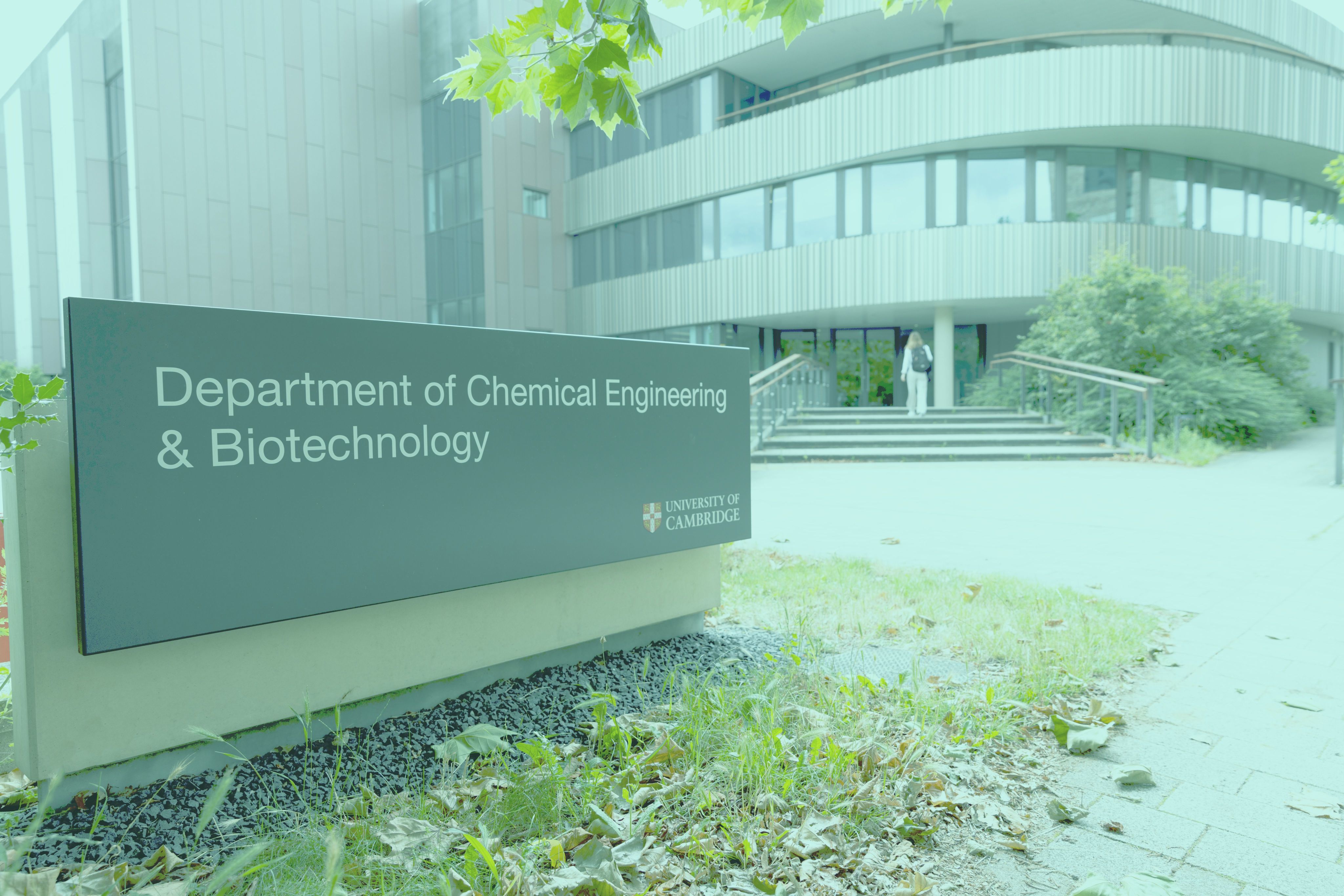
A festive message from Clemens:
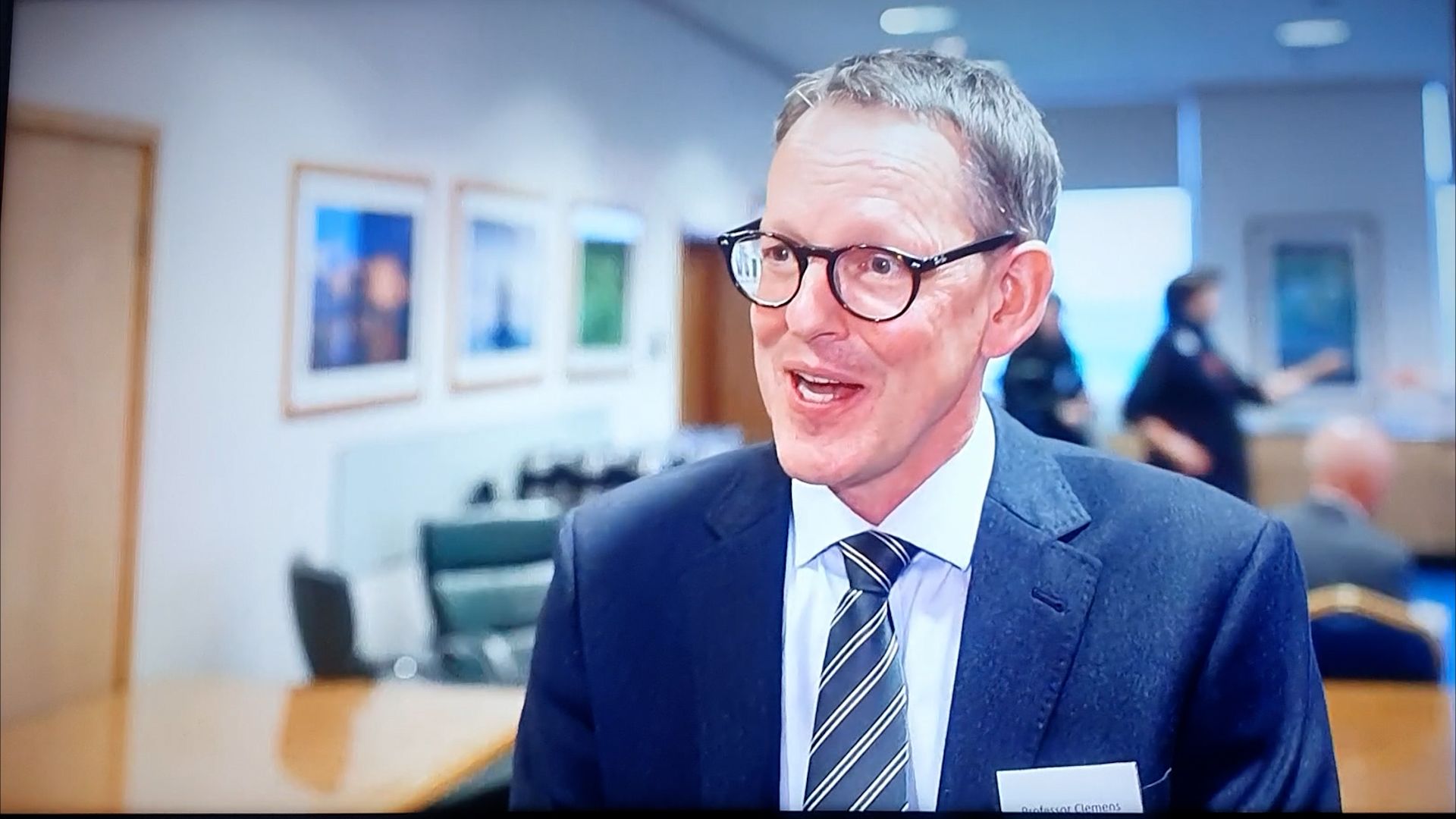
Afew weeks ago, as I was preparing to leave CEB, I heard a great commotion from the Atrium. I was concerned that there might be an incident to handle, but instead I found a robot battle unfolding in a fantastic mini-arena designed by our very own Robot Club and an enthusiastic crowd cheering on. It is just great to see the creativity and energy Josh and his team are pouring into organising such events.
The inner courtyard at CEB, where the Gardening Club project is taking shape. Credit: Martin Bond
The inner courtyard at CEB, where the Gardening Club project is taking shape. Credit: Martin Bond
This reminds me of other wonderful initiatives undertaken by our busy colleagues, often in their spare time. The Gardening Club, for instance, will be transforming our inner courtyard with Alex Carvell and his team investing tremendous effort and enthusiasm.
We were fortunate to enjoy a wonderful Christmas lunch together before going our separate ways, and I’m sure many of us appreciated the opportunity to gather in a relaxed setting, catch up with one another, meet new faces, and simply enjoy each other’s company.
I’d like to take this moment to express my heartfelt thanks to the teams who worked so hard to organise this fantastic event for us. Please join me in extending our gratitude to Anna, Debbie, Alistair, and their teams - as well as our quizmaster Alex Wilby - for making it all happen!
"Such commitment is what makes CEB such a vibrant and stimulating place to be."
Amid all this, we continue excelling in research and education. Our new Tripos is going from strength to strength, with more students applying than ever before. Our researchers are publishing in world-leading journals and earning prestigious accolades, winning multimillion pound grants to further our research in sustainability and healthcare and even getting involved in the running of the university.
- Department tops rankings in subject league tables
- CEB at heart of new EU-funded programme to train future synthetic cell scientists
- Master of his Kraft - Professor Markus Kraft named RAEng Fellow
- Dr Ewa Marek wins Energy Category of the Royal Society of Chemistry’s 2024 Emerging Technologies Competition for H2Upgrade
These are extraordinary achievements for our department, made possible by your dedication despite the pressures and uncertainties around us. I hope you enjoy a well-deserved, relaxing break with your families and friends. Please take some time to wind down.
With best wishes for a Merry Christmas,
Clemens
Clemens led on the media interest in Francis 'Tom' Bacon, who received a Blue Plaque in November. Clemens was interviewed by the BBC and ITV about his legacy and the sustainability research that has followed.



Welcome Bulletin for new starters
- Abigail Haynes has joined us as an Accounts Assistant, reporting to Faith Durup in the Finance team. Welcome to the team, Abbie!
- Olivia Le Grice-Cunningham has also joined as a Business Support Apprentice, reporting to Alessandra and Vito in the HR team. We’re excited to support you on this journey, Olivia!
Michaelmas updates
Latest news from CEB last term

As we wrap up another year, we reflect on a period filled with the sort of research and advancements we strive to lead in.
From securing significant funding for renewable energy research to innovative breakthroughs in cancer detection, our team continues to lead in addressing global challenges. We've also seen progress in sustainable aviation and hydrogen production, alongside numerous other exciting projects. As we head into the new year, we look forward to more impactful discoveries and collaborations that will shape the future of science and technology.
Simple urine test to save many lives
A novel urine test could detect early-stage lung cancer by identifying specific protein markers, offering an affordable, non-invasive diagnostic method that could lead to many lives being saved.
Securing a big grant for renewables
CEB's Professor Sam Stranks secures a €3 million grant from the European Research Council to continue developing the next generation of sustainable energy solutions, as commercial viability draws closer.
Academic Spotlight: Professor Devon Indar
From industry experience to academic excellence at Cambridge
Transforming chemical engineering education with passion and purpose

The sort of work environment Devon saw as a youngster, that helped shape a strong need to discover more sustainable practices
The sort of work environment Devon saw as a youngster, that helped shape a strong need to discover more sustainable practices
Devon at about 18 years old as he considered his future in the summer before attending the University of Manchester to study chemical engineering
Devon at about 18 years old as he considered his future in the summer before attending the University of Manchester to study chemical engineering
A new graduate. Devon at his undergraduate graduation from the University of Manchester
A new graduate. Devon at his undergraduate graduation from the University of Manchester
Devon began his career working for the Trinidad government, as he worked to pay off his student debt, before turning to a sole focus of sustainability
Devon began his career working for the Trinidad government, as he worked to pay off his student debt, before turning to a sole focus of sustainability
For Devon Indar, the journey to becoming a respected educator and chemical engineer spans continents, industries, and the deeply personal history of his Caribbean homeland. Born, quite literally, ‘into the oil fields’ of Trinidad, where his father worked tirelessly in the oil industry, Devon’s early experiences were among towering rigs and industrial machinery. It not only sparked a fascination with engineering but also instilled in him a profound appreciation for sustainability – a priority he aims to instil in his students today.
Picture perfect: Devon says that Trinidad was a beautiful place but pollution has had a major toll and it has led him to be more determined than ever to find effective solutions for his birthplace.
Picture perfect: Devon says that Trinidad was a beautiful place but pollution has had a major toll and it has led him to be more determined than ever to find effective solutions for his birthplace.
Raised among oil rigs and pipelines, Devon recalls, “I grew up in the industry; I was born into the oil field, literally. My earliest memories are just driving around the oil field with my dad.”
His father worked 41 years in the industry, and young Devon witnessed first-hand the labour and intricacies involved. Yet, his professional path took a turn after realising the industry’s ‘time-bound’ nature; he moved towards renewable energies and sustainable engineering – a pivot that would later align seamlessly with his academic and teaching pursuits.
Today, Devon has established himself as an Assistant Professor (teaching) in the Department of Chemical Engineering and Biotechnology (CEB) at the University of Cambridge. Joining Cambridge in 2023, he brought with him a wealth of industry experience, as well as a strong academic foundation. But a year into his Cambridge role, Devon reflects on the challenges and adjustments that have shaped his teaching philosophy and his views on the British education system.
“Cambridge terms are short,” Devon explains. “Some are only eight weeks, and you have to cover the same amount of material as other universities would in 12. That means lectures run at a faster pace, and a lot of gaps are filled during supervisions, which are essential to ensure students truly grasp the material. It’s quite distinct from my experience as a student in Manchester.”
The system initially surprised him, especially when students would turn up with ‘perfectly handwritten notes’ often replicated from crib sheets. For many Cambridge students, he noted, the desire to appear infallible sometimes overshadows the courage to admit misunderstandings.
“The trick,” he says, “is getting students to see value in standing up and saying, ‘I didn’t understand this.’ They’re really competitive, and they want everything to be right.”
It’s a trait Devon finds both admirable and challenging to balance in the classroom. When he first encountered students relying heavily on notes prepared by previous cohorts, even copying errors without question, he knew he had his work cut out for him. “Some of these crib sheets have errors,” he notes with a hint of humour, “so when they turn up with errors, I ask them, ‘how did you arrive at this?’ It’s a good way to gauge understanding and reinforce the importance of analytical thinking over rote memorisation.”
Enjoying the last summer of his school years
Enjoying the last summer of his school years
Beyond the classroom, Devon’s transition to Cambridge has been marked by both professional and cultural adjustments. Having previously studied in Manchester, where he earned his undergraduate, master’s, and PhD degrees in chemical engineering, he was not a stranger to life in the UK. But Cambridge, he says, is a different world: filled with bicycles and a desire to be sustainable but still with a way to go to be a truly ‘green city’.
My hope is that they will make better decisions than we did and drive the industry towards a more sustainable path. That’s the legacy I want to leave.”
Cambridge’s curriculum introduced Devon to a style of teaching and assessment that offers a unique complement to his industry-rooted perspectives. While his background as a strong advocate for practical, hands-on engineering education gives him a distinctive approach, he’s come to appreciate how the more theoretical focus at Cambridge cultivates deeply analytical engineers with an exceptional grasp of foundational concepts. "At Cambridge, there’s a strong emphasis on developing theoretical expertise," he notes. “Graduates here are often highly theoretical engineers, which can be a natural step towards research. It also builds strong critical thinking skills that benefit students across industry and academia. In industry, though, there are additional needs – people management, logistics, and software proficiency – that we can prepare them for alongside their theoretical training.”
He hopes to inspire a new wave of students who can bridge the gap between theory and practical application. To this end, Devon is exploring ways to integrate traditional assessments with dynamic, real-world testing methods that reflect practical engineering scenarios.
“One suggestion was to have hackathons where students sit in a lab and solve a problem within two hours using any tool they want – AI, software, the internet. That’s the kind of challenge that resonates with industry demands,” he said.
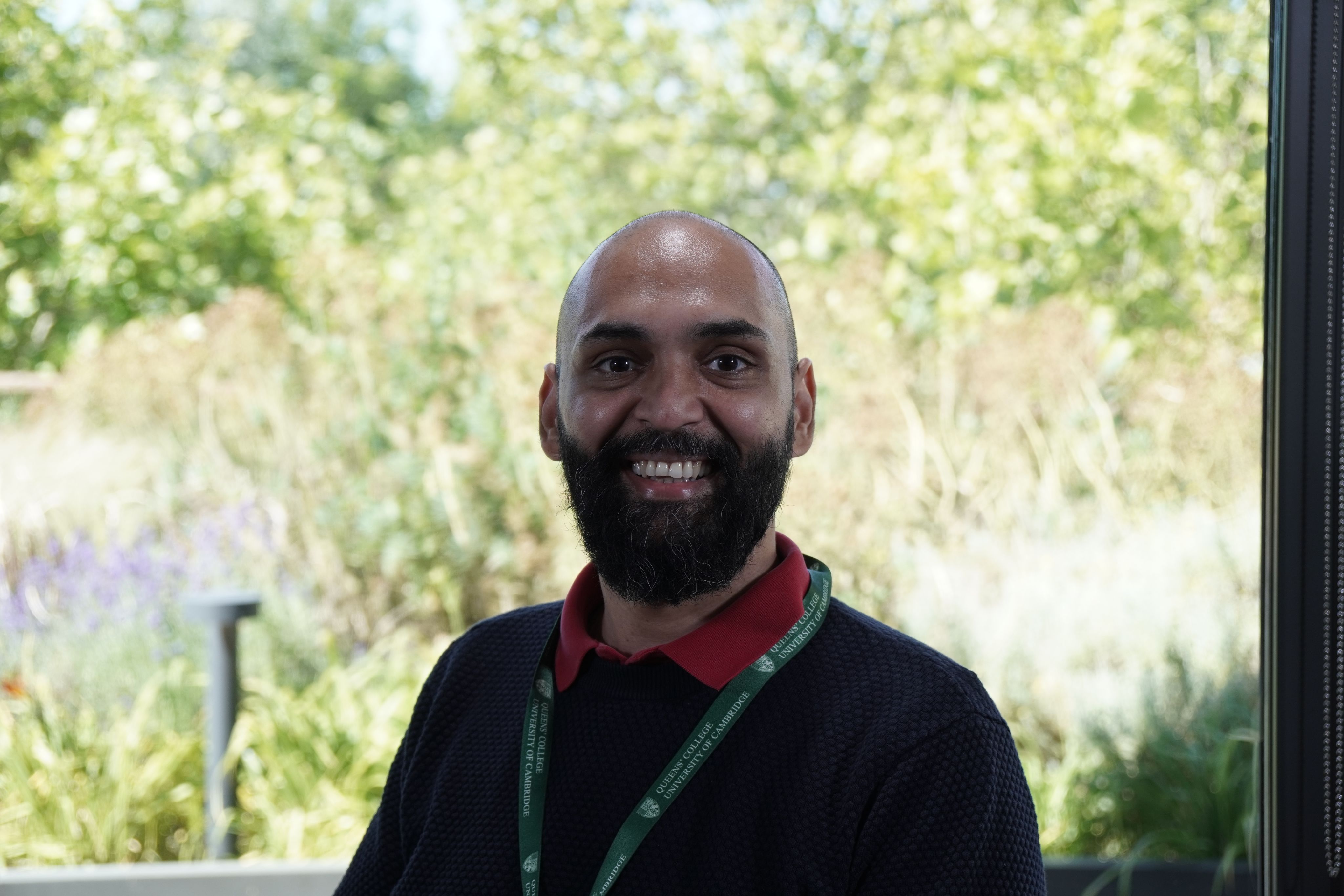
This approach, Devon believes, complements the existing curriculum and equips students with a more balanced skill set to navigate both academic and industry paths.
This emphasis on practical application is something Devon views as essential for his students, especially those who will step into the energy sector in the coming years. In Cambridge’s rapidly evolving syllabus, he has already begun to revamp the programme’s design project, extending it from five to 12 weeks and doubling its credit load.
“There’s an immense pressure to ensure the design project reflects real-world conditions and prepares students for industry challenges,” he shares. “But every academic here has a stake, so consensus can be difficult. Everyone wants their research to be relevant, but we can’t fit everything in.”
While Devon’s journey has taken him from the oil rigs of Trinidad to one of the most prestigious universities in the world, his heart remains closely tied to his roots. The environmental toll of his homeland’s industrial activity is never far from his mind. He recalls the bustling industrial sites back home, where smoke and pollution fill the air. “If you see it, you wouldn’t think it’s a Caribbean island,” he says. “You wouldn’t want to go in the sea there – it’s all slick with oil.” His upbringing instilled in him an urgency for change and fuelled his focus on sustainability, with the thought of creating the technology that will save Trinidad from the consequences of the oil industry.
Looking ahead, Devon dreams of eventually returning to the Caribbean, not to the oil fields, but perhaps to the tranquil beaches of Tobago. “My dream one day is to buy a beach house in Tobago and retire there,” he says with a smile. He wants to leave a legacy of innovation and critical thinking, inspiring students to value both the theories that drive science and the practicalities that shape the real world.
Devon’s work at Cambridge has only just begun, but his goal is clear: to cultivate a new generation of chemical engineers who are not only brilliant in theory but also capable of addressing complex, practical problems with confidence and creativity. Reflecting on the impact of his teaching, he says, “It’s a privilege to help shape the minds of future engineers. My hope is that they will make better decisions than we did and drive the industry towards a more sustainable path. That’s the legacy I want to leave.”
Through his experiences across both academia and industry, Devon brings a unique perspective, one grounded in a deep respect for his roots and a vision for a sustainable future. As he looks forward to many more years at Cambridge, his journey is a testament to the transformative power of education and the boundless potential that lies in bridging tradition with innovation.
Staff and student news
Recent successes from the teams
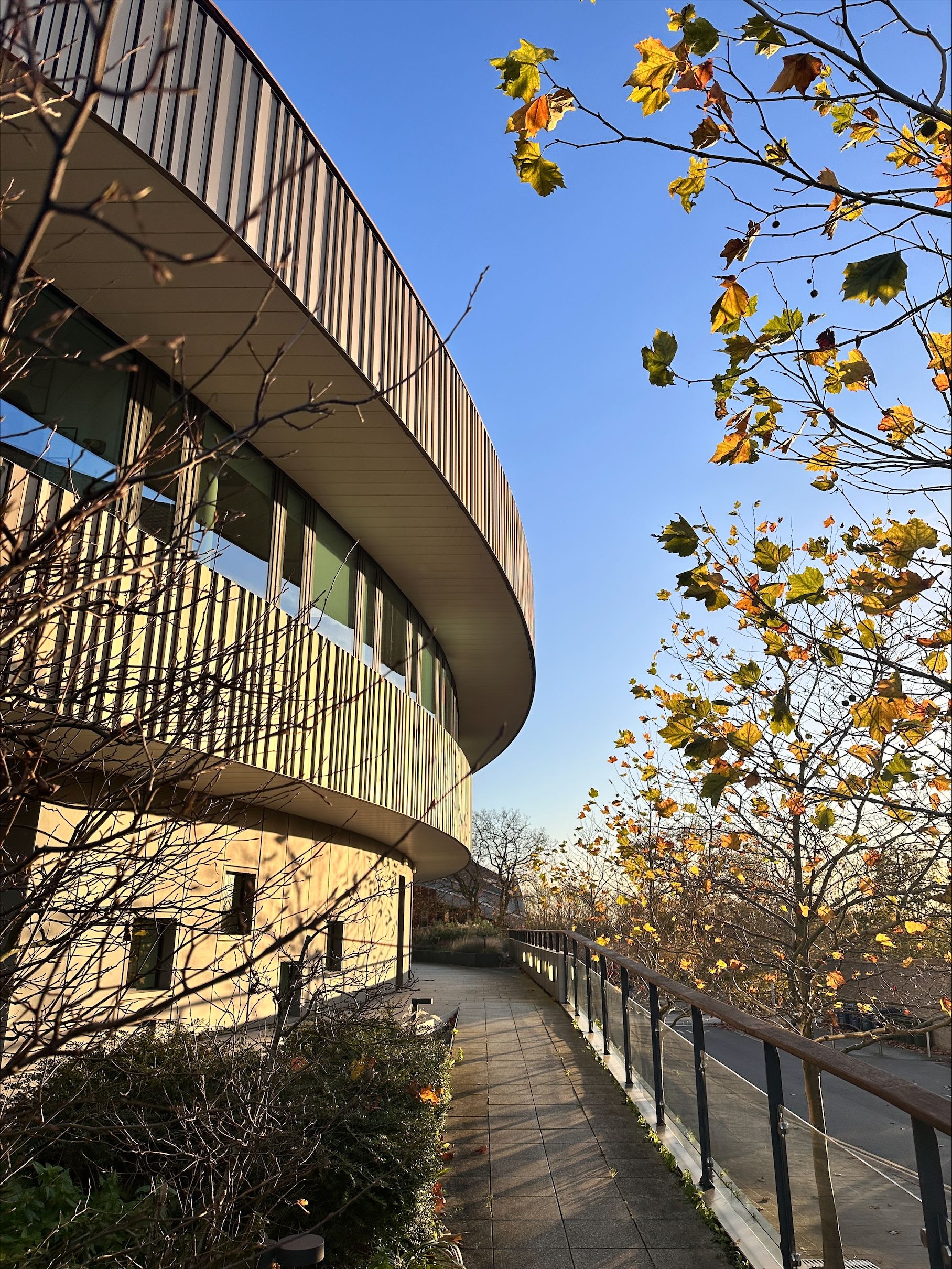
Worktribe group rewarded
The School of Technology Worktribe Readiness Group, which includes our own Tom Matthams, has been recognised for its contributions to improving processes within the University.
The team was awarded the Innovating and Improving category at the Professional Services Recognition Scheme ceremony, held on 5 December.
Elected to university Council
Associate Professor Ewa Marek, leader of the Energy Reactions and Carriers research group, has been elected to The University Council.
Her election presents an important opportunity to bring her expertise in sustainability, energy transitions, and education to one of Cambridge’s most influential governing bodies.
Bodgebots begin new season
The Robot Club has returned for a new season with a practice 'bodgebot' tournament.
Teams spent two weeks building a pre-fabricated wooden robot, the 'bodgebots', to learn the basic mechanics and electronics of robot construction. Each team then took to the arena to battle it out in a Christmas tournament.
Shaping future leaders
Professor Patrick Barrie wraps up his first full-time term back at CEB following a five-year stint in a dual role with the School of Technology
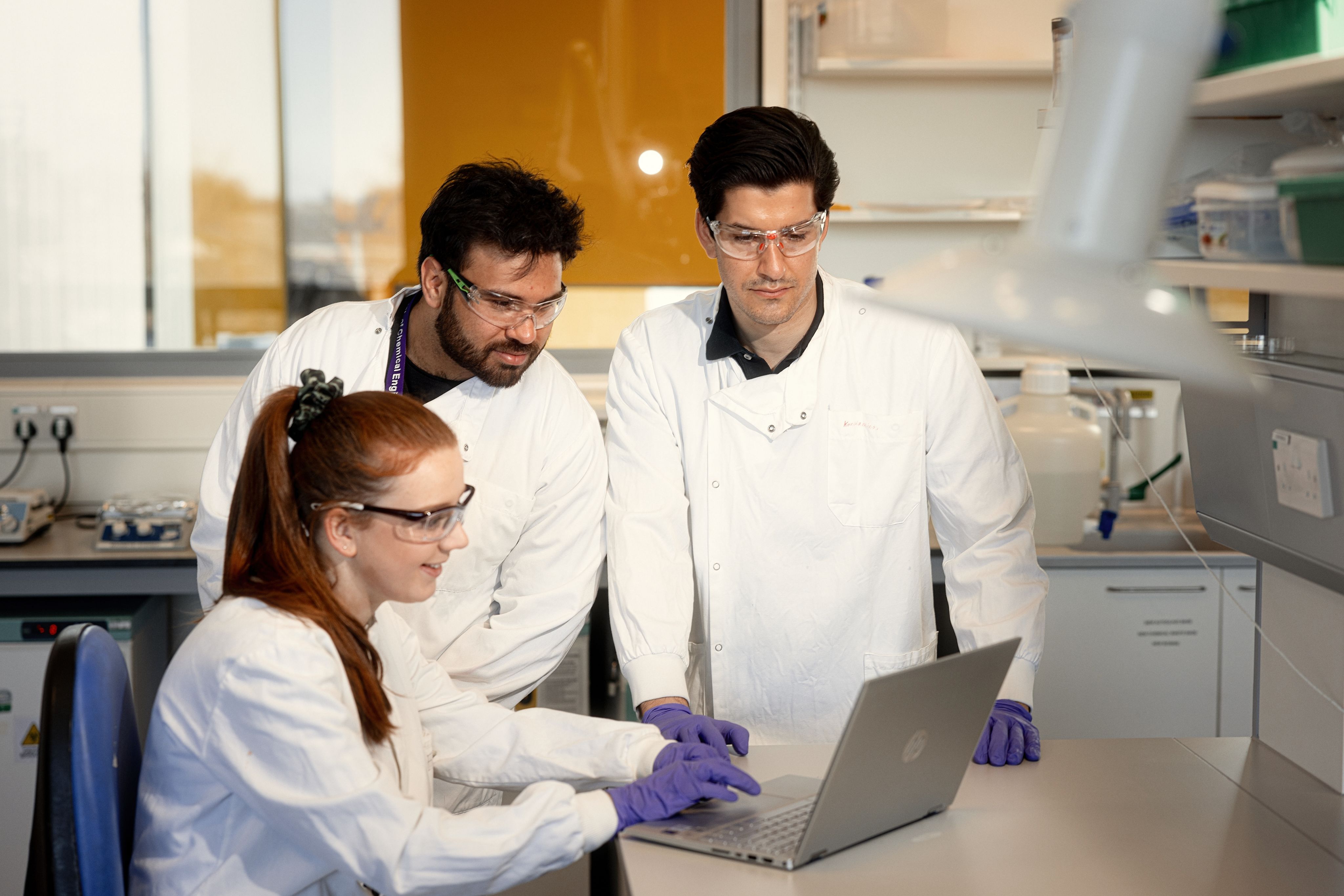
The Department of Chemical Engineering and Biotechnology (CEB) is pleased to have Professor Patrick Barrie back full-time after concluding his five-year tenure as Director of Education and two-year tenure as Deputy Head of the School of Technology (Education) over the summer. Since returning, Patrick has been working with renewed energy on CEB’s undergraduate programme, helping shape the recently restructured course that integrates chemical engineering and biotechnology.
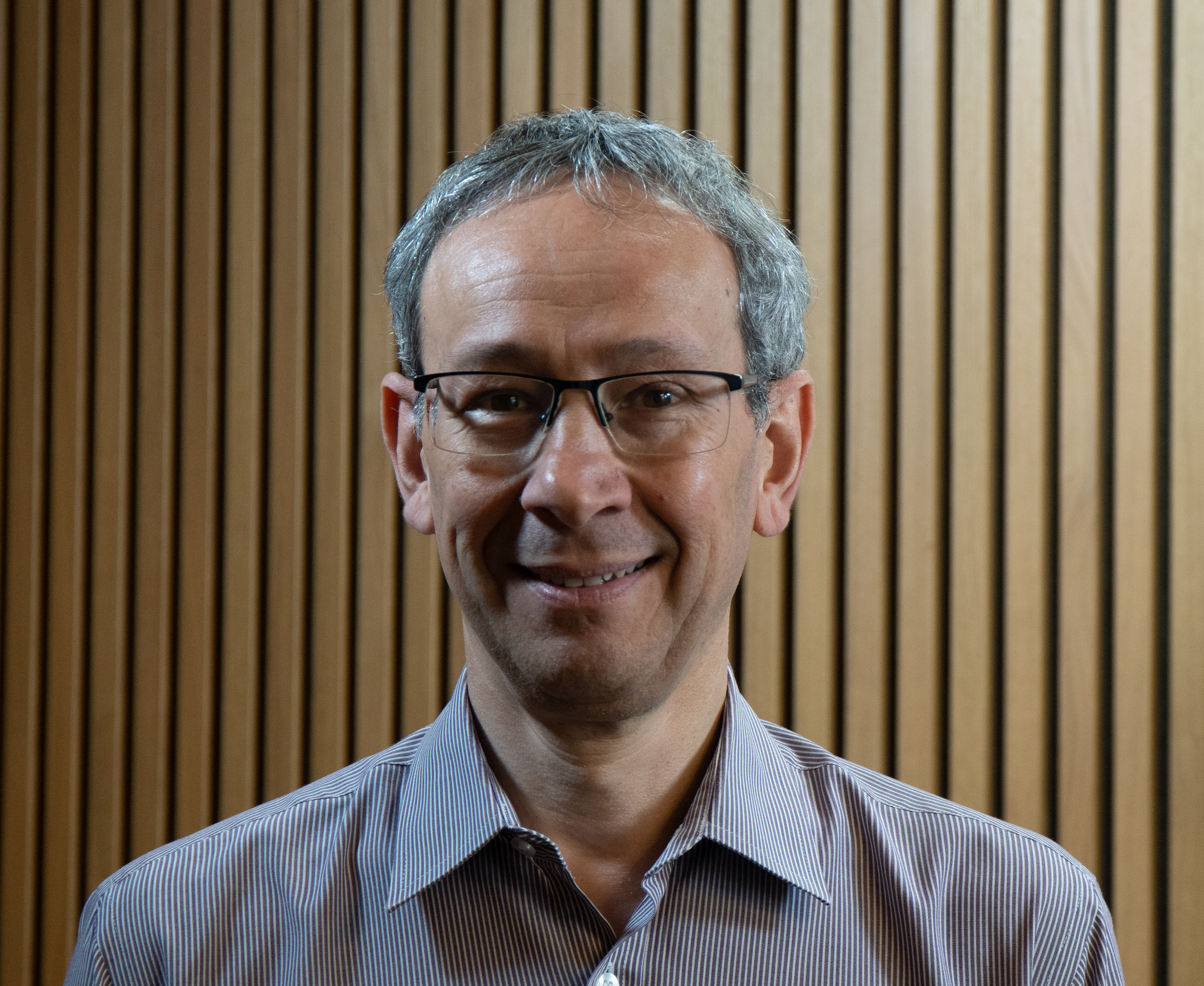
During his time at the School of Technology, Patrick played a pivotal role in advancing education across departments, particularly through the challenges of the pandemic. His leadership helped develop new courses, improve communication across the University, and strengthen support for students at all levels.
Now fully focused back on CEB and looking ahead to Lent term, Patrick will ensure that the undergraduate curriculum is well delivered to our students and that the department’s strengths in healthcare and sustainability is communicated. His work ensures students are well-prepared to address today’s global challenges, whether through innovation in research or impactful work in industry. As we prepare to begin 2025, Patrick’s return marks an exciting chapter for CEB, with his leadership helping to connect cutting-edge research to the classroom and prepare the next generation of graduates to make a real difference.
Behind the veil: The curious science of cows
Or how I learned to stop worrying and love the bike wheel
By Alex Wilby
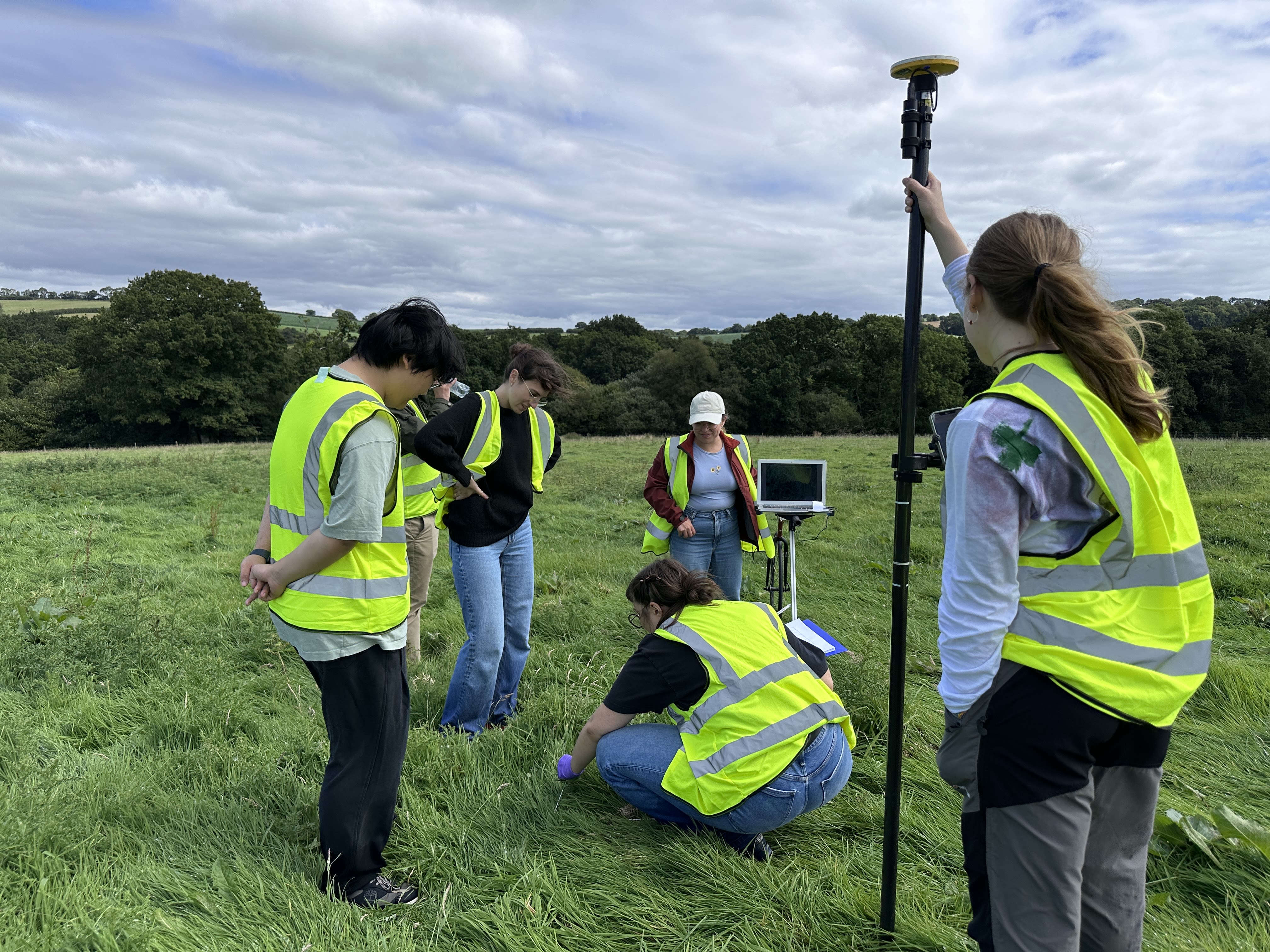
Standing in a rain-soaked field on the outskirts of Dartmoor, I watch as two figures in neon hi-vis jackets drive a long pole into the spongy Devon soil. One of them crouches down, pressing a brightly coloured plastic stake into the earth. The pole is pulled up, boots squelch across the sodden grass, and the process begins again.
I’m on the edge of this field, camera in hand, puzzled by what I’m seeing. I had been sent to Devon with a camera to film a bovine-mounted biodiversity sensor. As I watch the two figures move on to their next site, the question on my mind is: What on earth does any of this have to do with cows?
The answer, it seems, is the Sensors CDT ‘Team Challenge’, a three-month project on a topical sensing problem tackled and led by the Master of Research (MRes) cohort as a whole team. The 2024 cohort's mission, set by Rothamsted Research, was to develop a way to survey and reliably record the biodiversity across their cow fields. The team had proposed a sensor that could be attached to a cow’s collar, snapping pictures of the pasture as the animal wandered through it. The idea was to use the movement of the cow to save valuable man hours. They had designed and tested their technology, 3D-printed a custom housing for the sensor, built a machine-learning algorithm to analyse the photos, and created an app to make the data user-friendly.
Now, they had ventured to the North Wyke farm, approximately 20 miles west of Exeter, to put their invention to the test. Not the most glamorous of tests I think, as my feet start to sink, but a vital one nonetheless.
Naively, I had assumed the students would immediately strap the collar onto a cow and get to work. Time is tight, after all, we are only here for a day, so why are they spending time poking holes in the Devon countryside?
Unable to hold back my curiosity, I ask the students. It turns out the long plastic pole was effectively a GPS-enabled spear, used to mark precise locations with colourful stakes. These markers would guide a second team later in the day, who would be arriving with an unexpected piece of equipment. Dubbed ‘team bike wheel’, they would later arrive with a segment of an old bike frame, complete with a single wheel.
Devon, as far as I knew, wasn’t exactly a hotbed for unicycling enthusiasts and so, almost as quickly as it had disappeared, my confusion returned. But, as the day wore on, the purpose of the unusual contraption became more and more clear; especially once I spotted the sensor on it. Attached to the bike frame was a sensor identical to the one destined for the cow’s collar. The whole setup functioned like a trundle wheel with an elongated handle. The idea was simple yet ingenious: before trusting the sensor on a real cow, they needed to ensure it would gather reliable data. The bike wheel acted as a bovine proxy, allowing the students to collect a manual sample from the field as a baseline for comparison.
For the rest of the afternoon, the students walked their makeshift mechanical cow around the field, stopping at each fluorescent stake to take pictures of the ground.
It really is an exciting project and one that could have commercial avenues, although the team has decided – commendably I feel – that it is the ethically right decision to make their designs open source and provide the plans to anyone who might benefit. It is about the science, not the money, and the project has given the team of 13 an incredible opportunity to learn and develop their skills.
As I watched the students trek through the muddy field with their unconventional tools, what I gained was a newfound appreciation for the quirky side of science. Sometimes, the most valuable scientific equipment isn’t a million-pound, cutting-edge machine but a GPS-enabled spear or a bike frame with a camera strapped to it. This resourcefulness, and creativity, is what makes the work done in this department so fascinating. Whether you’re an engineering undergrad or a seasoned professor, the inventiveness on displayed on that damp Devon day is nothing short of remarkable.
CEB Newsletter
This email was sent to you because of your affiliation with the Department of Chemical Engineering and Biotechnology (CEB).
© 2024 Department of Chemical Engineering and Biotechnology, University of Cambridge
Communications Team | Philippa Fawcett Drive | Cambridge, CB3 AS | UK




























